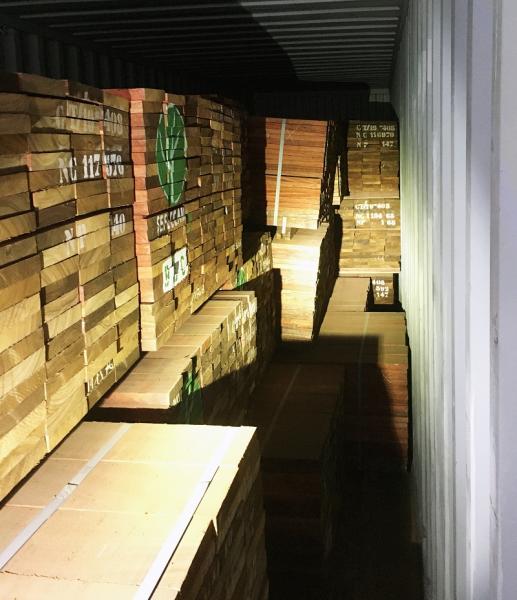CHARLESTON, S.C. – U.S. Customs and Border Protection (CBP), Office of Field Operations, at Charleston seaport intercepted potentially dangerous pests in a shipment destined for North Carolina.

Specialist at Charleston Seaport.
On May 29, CBP Agriculture Specialists inspected a maritime shipment of stacks of lumber from Cameroon and found pests crawling on the wood. The pests were collected and promptly sent over to U.S. Department of Agriculture (USDA) laboratory for further evaluation. The container was sealed and secured awaiting the USDA report.
“This interception of these termites hitchhiking on a lumber shipment is significant,” said Richard Quinn, CBP Port Director at Charleston Seaport. “CBP agriculture specialists perform work that is critical to protecting the U.S. by preventing the introduction of harmful pests into the country.”
The USDA identified the pests as Kalotermitidae species, also known as dry wood termites which can cause significant damage to structure timbers and hardwood floors in homes.
The containers and lumber were fumigated to mitigate the risk of the pests and to ensure all specimens are no longer living before the commodity was released back to the importer.
CBP agriculture specialists have extensive training and experience in the biological sciences and agricultural inspection.

Specialists on this shipment of wood.
On a typical day nationally, they inspect over 1 million people as well as land, air and sea cargo imported to the United States, and intercept 314 agriculture pests and 4,695 prohibited meat, plant materials or animal products. Learn more about what CBP achieved during "A Typical Day" in 2019.
CBP's agriculture protection mission is led at ports of entry by CBP agriculture specialists from the Office of Field Operations. Please visit CBP Ports of Entry to learn more about how CBP’s Office of Field Operations secures our nation’s borders.
Follow the Director of CBP’s Atlanta Field Office on Twitter at @DFOAtlanta and for breaking news, current events, human-interest stories and photos.

